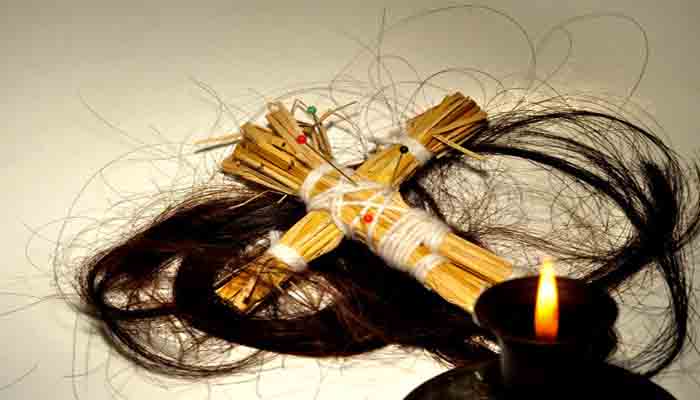
In several villages reports of women’s braids being cut and stolen have sent ripples of panic.
As panic spreads across Rajasthan, Haryana, Delhi and western Uttar Pradesh, the lines between ghost stories and actual crime have been blurred.
In Kanganheri, like in other villages, the discourse centres around black magic and sorcery after three women became unconscious following a splitting headache and woke up with their braids on the floor.
Manoj, whose 55-year-old mother Sridevi, lost her hair, is sure of the fact that the police is blaming a scapegoat when it’s actually dark magic at play.
“For one moment, I will believe that it is a man roaming around cutting women’s braids, but how do you explain the same thing happening at so many places simultaneously?” asked the 32-year-old.
“My mother, who is active usually, is feeling so weak now. The tantric has stolen her strength from her body through her braid,” Manoj, who runs an electrical repair shop in the village said.
Holding such beliefs is not shocking. Many religions and holy scriptures place a lot of value on a person’s hair with many stating that one shouldn’t walk around with their hair open after dark as a ghost can enter the mind. They advise that the hair is tied in a tight bun to prevent such paranormal control.
A team from the Institute of Human Behaviour and Allied Sciences (IHBAS) visited Kanganheri village days before.
According to IHBAS director Nimesh Desai, it is “too early to have an opinion, but one of the many possibilities could be factitious disorder”, a condition where a person fabricates or exaggerates physical or psychological symptoms.
“Diagnosis or impressions like factitious disorder should be made very carefully. But it becomes more complicated and delicate when my belief system or behaviour is rooted in something my community and/or my subculture believes,” Desai told PTI, doubting the possibility of factitious disorder at a mass level.

Post Your Comments